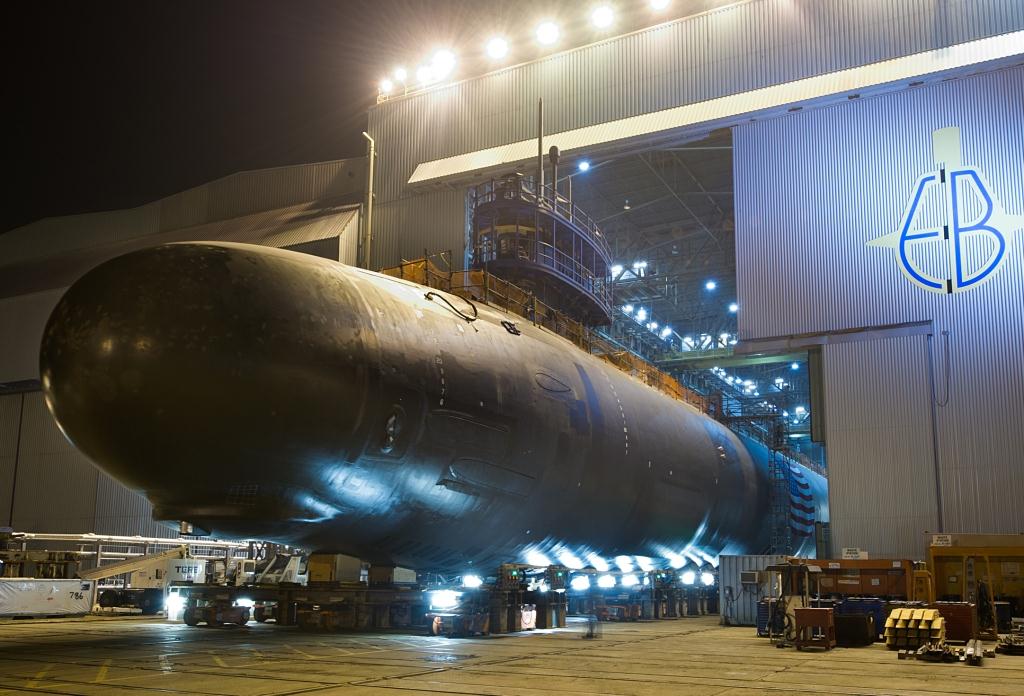
UPDATED: Changes Timeline On When Columbia & Virginia-class Missile Tubes Became Known; Adds New Comments From BWX Technologies. Corrects Headline.
PENTAGON: After problems with welding on missile tubes for two classes of Navy submarines, and uncertain about future work, Virginia-based military contractor BWX Technologies warns it may leave the missile tube business behind. The move would leave only one US supplier standing who can deliver the critical systems as the Navy kicks off an ambitious schedule to build three to four subs per year.
The president and CEO of BWX, Rex Geveden, told analysts on an earnings call earlier this month, “there is a pathway to stay in the (missile tube) business if we want to do it. I think the ultimate customer, the Navy and NAVSEA would want more than one supplier.” But he added, “we’re not interested in the future orders unless we do have a way to make money on these orders.”
The revelation that BWX could leave the missile tube business segment is yet another warning light for watchers of the Pentagon’s industrial base, who have been warning of disruptions in the supply chain as suppliers continue to walk away from military work after years of start and stop procurement binges and budget cuts driven by the Budget Control Act.
If BWX, a company that also makes nuclear reactors for the Navy’s subs and aircraft carriers, pulls out of the missile tube business, it would do so after paying tens of millions from its own coffers to correct issues with the new Columbia submarines and Virginia modernization effort.
The company says it “self-diagnosed” the welding issues before sending the tubes to the Navy, and according to spokesman Christopher Dumond, “all repairs on the VPM tubes have been completed as of the end of the second quarter. We are in constant contact with both our customer and the Navy to minimize delivery schedule delays.” The Virginia and Columbia issues were first reported last August, but some of us missed that it applied to the tubes on both submarine classes.
Last year, the company paid $27 million to fix the Columbia issues, after the Navy discovered incorrect welds during inspections. The company has been working as a subcontractor to Electric Boat on the $128 billion Columbia program, which the Navy has long said is its No.1 modernization priority. The fixes are not expected to impact the Columbia’s extremely tight schedule. Work is slated to kick off in 2021, with deliveries starting in 2030 — just in time to begin replacing the Cold War-era Ohio-class subs as the Navy’s leg of the nation’s nuclear triad. The subs will carry 70 percent of the warheads allowed by the New Start treaty with Russia.
The plan for the missile tubes as it currently stands is for BWX deliver three of four tubes to Electric Boat, followed by a fourth tube made by BAE Systems for the first Virginia Payload Module. BAE will then build the remaining tubes for the rest of the upgraded submarines.
“At this point, we have not received any incremental orders for missile tube continuous production,” Geveden said on the analyst call. “In the absence of any additional orders we plan to reallocate most” of the company’s industrial capacity to the nuclear side of its Navy business, saving the company about $10 million.
The Navy is walking a razor’s edge on its Virginia and Columbia programs, and any slip on one program will affect the other. “One of the biggest risks to Columbia is if Virginia gets out of its cadence,” James Geurts, the Navy’s acquisition chief, told reporters earlier this year.
Both programs share a single industrial base, and their interwoven schedules present a difficult issue that the Navy is working hard to keep moving forward. Beginning in the early 2020s, both sub classes will be under construction at the same time, churning out one Columbia and two to three Virginia subs per year. That makes getting the Virginia right a core national security issue. The Navy says for now the tube mishaps won’t affect it’s timelines. But for both programs, this is just the start of a long and complicated build process.
This story was first published at Aug 14, 2019 @ 17:35. It has been updated.

